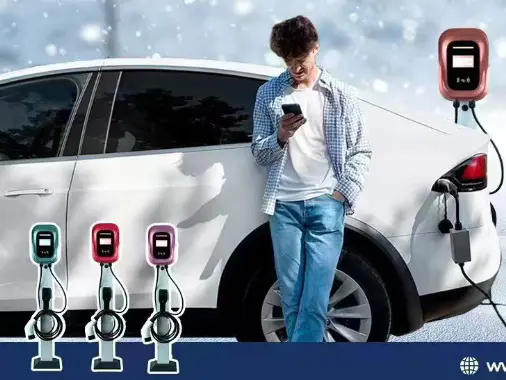Level 1 vs Level 2 Charging, Charging Stations
As the popularity of electric vehicles (EVs) grows, understanding the different types of charging stations becomes essential. In this blog, we will compare Level 1 and Level 2 EV charging stations, focusing on what they are, their costs, and their charging speeds. Let’s dive in.
What is a Level 1 EV charging station?
A Level 1 EV charging station is the standard charger that comes with most new electric vehicles (EVs) and plug-in hybrid electric vehicles (PHEVs). It plugs directly into a regular 120-volt wall outlet, meaning no installation is required—simply plug in, and you’re good to go.

How Much Does a Level 1 EV Charging Station Cost?
For most new EVs or PHEVs, the Level 1 charging station is included in the purchase. However, if you need to purchase one separately, the cost is typically around $200. A portable Level 1 charging station can be stored in your car, allowing you to charge your vehicle when you’re out and about or in case of an emergency.
How fast is a Level 1 EV charging station?
Level 1 charging stations are much slower than other types, often referred to as “trickle chargers.” Depending on the efficiency of your vehicle (miles per gallon equivalent, or MPGe), a Level 1 charger will add about 3 to 5 miles of range per hour of charging.
If you’re a commuter driving short distances or using your EV for local errands, Level 1 charging might suffice.
For PHEV owners, a Level 1 charging station can fully charge the battery overnight, assuming it’s not too depleted. However, for those looking to fully recharge an EV’s battery, the results may be disappointing. Even after a full 8-hour charge, a Level 1 charger will only add around 40 miles of range in optimal conditions. Cold temperatures may also slow down charging or prevent it from maintaining the battery charge.
What is a Level 2 EV charging station?
A Level 2 charging station offers a significant upgrade in power compared to Level 1 charging stations. These chargers can be found in public places such as shopping centers and workplaces, but they can also be installed at home. Unlike Level 1 charging stations, Level 2 charging stations require a 240-volt electrical input, which is the same type of outlet used by large appliances like dryers or welders.
How Much Does a Level 2 EV Charging Station Cost?
The cost of a Level 2 charging station ranges from $300 to $800 depending on the model and features. However, this price only covers the charger itself. Installing the 240-volt outlet needed for a Level 2 charger can be much more expensive, with costs varying widely depending on the electrician, location, and the distance between the breaker panel and the charging station.
How fast is a Level 2 EV charging station?
Level 2 charging stations are significantly faster than Level 1 charging stations. They can provide up to 9.6 kW of power, which translates to adding between 15 to 30 miles of range per hour of charging.
With a Level 2 charging station, it typically takes only a few hours to recharge your EV to a full battery, even if the battery was significantly depleted.
If you install a Level 2 charging station at home, it’s the ideal solution for keeping your EV ready to go, especially if you park overnight. Many home chargers can even be programmed to charge during off-peak hours, when electricity rates are lower.
Which Charger Should You Choose?
Level 1: Ideal for light daily use or for those who have a shorter commute and are willing to charge overnight for a full battery. It’s the most affordable and easiest option, requiring no installation.
Level 2: Best for EV owners who need a faster and more convenient way to charge. It’s especially useful for those with longer commutes or multiple vehicles. While it’s a bigger upfront investment, the speed and efficiency make it a great choice for home charging.
